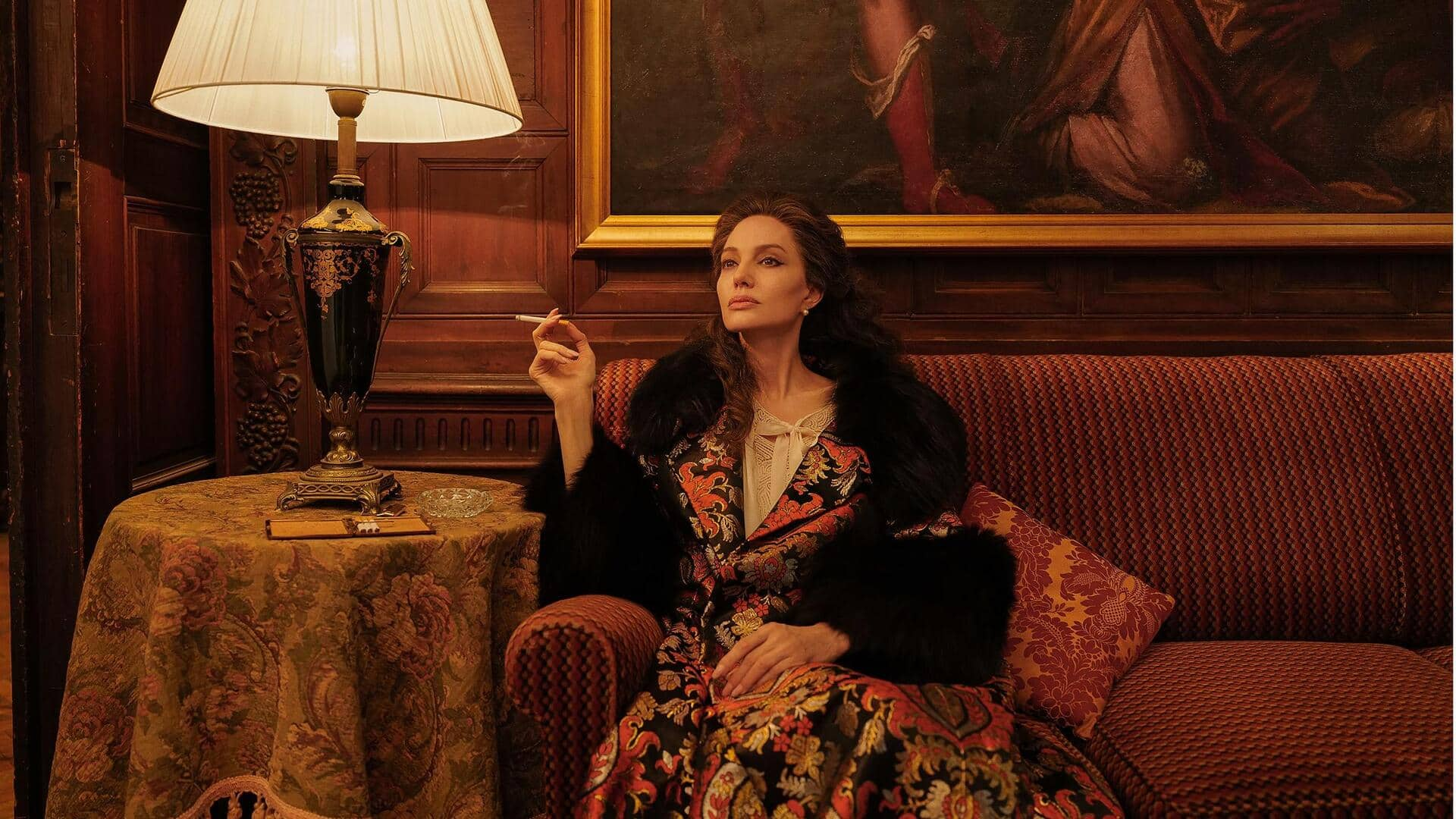
'Maria' review: Angelina Jolie is splendid in engaging biopic
What's the story
At one point in Maria, the titular character and legendary opera singer Maria Callas (Angelina Jolie), declares, "I live my life looking back." This dialogue truly reflects the essence of this somber, slow-paced project that traces the last few tragic and melancholic days in Callas's life. Jolie is mesmerizing in this demanding, complex role, but the film leaves much to be desired.
Story
Captures Callas's last days before her death at 53
The film, now streaming on Lionsgate Play, is directed by Pablo Larraín. The non-linear narrative focuses on Callas's crumbling life, her hallucinations, and confrontations with her past. When we meet Callas, she hasn't sung in over four years, her health is rapidly declining, and she is addicted to Mandrax, a sedative drug. Essentially, she is a tragic shadow of her former self.
#1
You instantly feel for Callas
For the most part, Maria is engaging, thrilling, immersive, and deeply interesting to watch, and most of the credit goes to Jolie's flawless, scintillating performance that has no false notes. When we meet her in the first few scenes, Callas looks troubled, extremely vulnerable, tortured, and overwrought. Her eyes convey much more than her words do, and you instantly feel pity for her.
#2
What is it that Jolie cannot do?
In the film's own words, it is "Greek, grand, sad, and framed by the past," and Jolie's portrayal of Callas perfectly encapsulates this sentiment. Jolie fuels life into Callas's dwindling, rapidly deteriorating, and worn-out life, and we see her life shatter into pieces under the heavy, ponderous weight of fame. Maria asks us: What is the cost of fame? Can everyone afford it?
#3
Pay special attention to the gorgeous dialogues
Maria also finds much of its strength in its lush, poetic dialogues, which perfectly represent Callas's life. At one juncture, when asked not to overdose, she says, "The medicine is under control, under my control." In another scene, when her butler, concerned about her hallucinations, asks her to care for herself, she pointedly responds, "What is real and what isn't is not my business."
#4
It quickly transports you to the past
Shot magnificently, Maria is absolutely gorgeous to look at, and cinematographer Edward Lachman flawlessly creates an era gone by. In many scenes, I was reminded of Sofia Coppola's Priscilla, another period film that tackled similar themes. Separately, Bruna and Ferruccio, Callas's housekeeper and butler, are just as integral to the plot, and they tell us a lot about the famed singer.
#5
Negatives: The surface-level treatment hurts it
Much of Maria is impressive, and Jolie is magnetic, but the film feels unsatisfying and hollow. While it's understandable why the focus is on the legend's last few days, it would have helped the film (and the viewer) had the movie also focused on her meteoric rise to fame. When we meet her, she's an enigma, but who was she before her life splintered?
#6
More on the above aspect
Maria teases several interesting ideas, but then abandons them awkwardly instead of developing them. For instance, Callas speaks about her difficult, fractured relationship with her mother Litsa, who had her so the singer could "take care" of her. However, this aspect is never fully explored. Moreover, the portrayal of her romantic relationship with Aristotle Onassis also feels underdeveloped and opaque.
Verdict
Despite its flaws, it remains an interesting watch; 3/5 stars
Callas always remains at a distance, and several details of her life remain shrouded in obscurity. On the flip side, Maria is cerebral and a fine, sharp portrait of the legend's troubled world; even when she flashes a smile, there's a war brewing inside her. It perfectly explores how the world beyond the blinding flashes of cameras is dark and frightfully hollow. 3/5 stars.